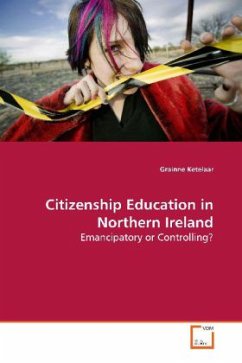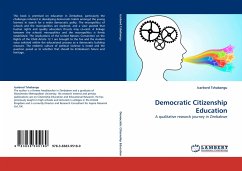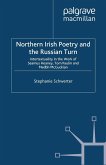In Northern Ireland citizenship education aims to
develop active and engaged participants in democracy
as we know it. But what if young people and the
adults they know around them are largely sceptical
about politics and democracy as we know it, see
the vote as relatively worthless and despair about
decisions that are made by elected leaders? Separate
chapters identify what youth political disaffection
is, what the policy makers behind citizenship
education think it is about and why citizenship
education misses the point. By misrecognising what
political disaffection is, citizenship education
renders itself unsuited to the task of resolving
disaffection and instead can be seen as a social
engineering tool intent on inculcating a passive
acceptance of democracy. This book gives a clear and
thorough account of education in contemporary N.I
society and will be invaluable to teachers of
contemporary social theory, politics and education,
as well as to researchers and students, school
teachers, youth workers and engaged citizens.
develop active and engaged participants in democracy
as we know it. But what if young people and the
adults they know around them are largely sceptical
about politics and democracy as we know it, see
the vote as relatively worthless and despair about
decisions that are made by elected leaders? Separate
chapters identify what youth political disaffection
is, what the policy makers behind citizenship
education think it is about and why citizenship
education misses the point. By misrecognising what
political disaffection is, citizenship education
renders itself unsuited to the task of resolving
disaffection and instead can be seen as a social
engineering tool intent on inculcating a passive
acceptance of democracy. This book gives a clear and
thorough account of education in contemporary N.I
society and will be invaluable to teachers of
contemporary social theory, politics and education,
as well as to researchers and students, school
teachers, youth workers and engaged citizens.








